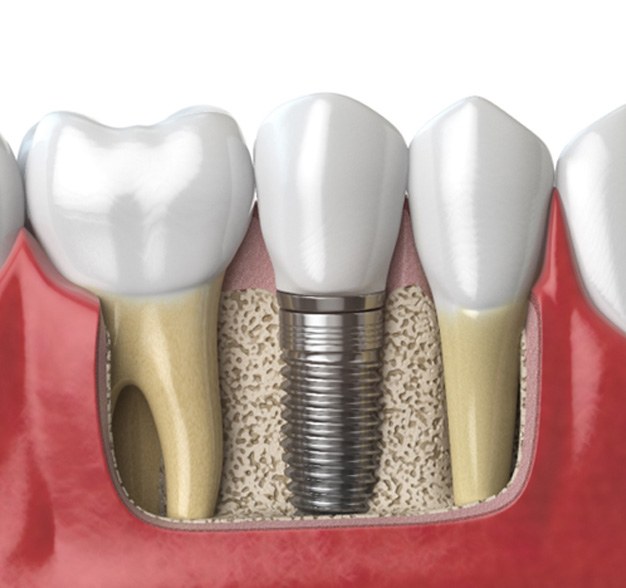
Dental Implant Failure & Salvage – Jacksonville, FL
Save Your Dental Implants from Failing
Dental implants are very successful. They have a success rate of over 95%! However, just like any type of treatment, some risks come along with them. In some rare situations, dental implants can fail. While this is unlikely, it’s still important to be aware of the causes of dental implant failure as well as the common symptoms and treatment options. If you have any concerns regarding your dental implants, don’t hesitate to reach out. We’re always ready to help!

Why Do Dental Implants Fail?

The most common reason why dental implants fail is because of peri-implantitis. This is an infection that occurs when harmful bacteria invade the tissue around the implants, ultimately causing damage. Eventually, the jawbone and gum tissue can deteriorate and lose their ability to support the implants. In most cases, peri-implantitis is caused by poor oral hygiene, but other factors can also play a role.
Dental implant failure can also occur from failed osseointegration. This is when the implant and jawbone don’t fuse properly. Other causes include physical trauma and medical conditions, like cancer.
Symptoms of a Failed Dental Implant

It doesn’t matter if your dental implants are brand new or if you have had them for several years. Dental implant failure can happen at any time. Here are some of the most common signs of dental implant failure to look out for:
- Severe or Unusual Pain: Some soreness is normal after your procedure. However, after you heal, your implants should feel comfortable and natural.
- Loose Implant: In some cases, this can be a problem with the replacement tooth attached to the implant. In other cases, it could point to dental implant failure.
- Bleeding & Swelling:If you notice bleeding, swelling, or pus, you could be dealing with an infection. You should seek immediate dental attention.
- Difficulty Chewing: When your implants are healed and you have received your replacement teeth, eating shouldn’t be a problem at all.
How Dental Implant Salvage Works

If you think that there may be a problem with one or more of your dental implants, don’t hesitate to give us a call. We can examine your smile, learn more about your symptoms, and discuss treatment options. Sometimes, we can save dental implants with a deep dental cleaning, antibiotic treatment, and other infection control methods. Ultimately, the quicker you seek treatment, the better your chances of keeping your implants healthy!